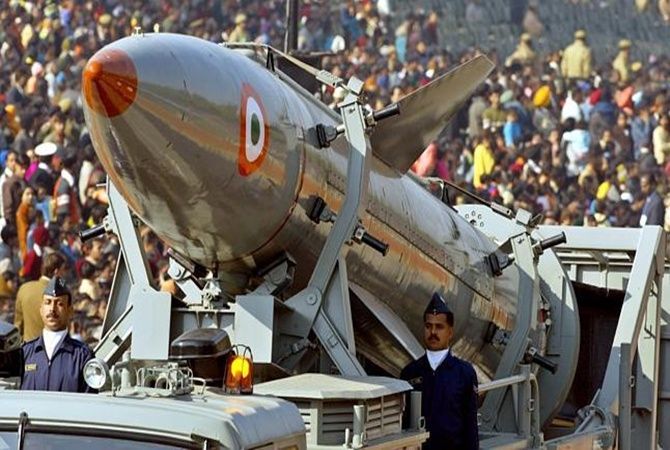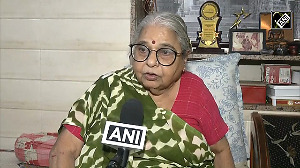 The ‘Make in India’ concept in the defence sector has the potential to help India meet 70 per cent of its defence needs in a few years.
The ‘Make in India’ concept in the defence sector has the potential to help India meet 70 per cent of its defence needs in a few years.
Today, domestic production meets only 30 per cent of its needs.
“This could be achieved by making India the hub of MRO business by investing in research and technology processes and by focusing on the development of skills in 70-plus trades relating to the aerospace industry,” said R K Tyagi, Chairman, HAL, at the Foundation Day Celebrations of the Council of Scientific and Industrial (CSIR) in Bangalore.
Speaking on the occasion, Tyagi outlined a five-point agenda for galvanising the R&D scenario in the country.
The first step towards a better R&D set up is to increase funding to the national research laboratories such as NAL significantly as they safeguard and protect the country’s IP.
The second point is to create an agency dedicated to disruptive research ideas within India on the lines of DARPA under Department of Defence in the US, Phantom works in Boeing or Skunk works in Lockheed Martin.
This agency would help us achieve the success that atomic energy or space sector has witnessed. He urged that a serious attempt needs to be made to establish a National Aeronautics Commission to synthesise the learnings of the aerospace sector.
Tyagi’s third point reflected the point made by the Prime Minister at the Madison Square in New York. He stressed that a lot of Indian-origin scientists would be more than willing to work in niche areas to prop up the country’s capability.
A policy framework for engagement of such persons of Indian origin needs to be formulated to fill up the critical technology gaps.
Stressing on higher degree of participation from Industry in R&D, Tyagi’s fourth point brought out that one each of the 37 labs of the CSIR needs to be adopted by a specific industry or the company so that the lab work is easily commercialised and is made relevant to the needs of the aerospace industry.
He commended the role of the CSIR and the National Aerospace Laboratories (NAL) and urged them to open their laboratories to companies such as the HAL and others to exploit the hidden advantages of this scientifically well-established infrastructure.
“Such a step will also bring in the much-needed funds and give fillip to the on-going activities of CSIR-NAL,” he added.
The industry should nurture these labs as they have generated a significant intellectual property over the last 72 years of its existence, he added.
While complimenting NAL on doing pioneering work in aerospace, he stressed that with a budget of around Rs 200 crore with half of it going towards salaries and infrastructure support, it is difficult for any organisation to do a path-breaking research and HAL would like to par- tner NAL in all its endeavours and nurture it as an extended arm of HAL.
Lastly, he touched upon the need for a vibrant skill development set-up in the country. He said, all efforts for a meaningful R&D cannot succeed unless the country has a very strong skill base.
India will have approximately 25 per cent of the world’s workforce by 2025.
On the flip side, by 2022, India will require about 500 million skilled workers across sectors, specifically in manufacturing. The country will see a skills gap of nearly 90 million workers - almost twice the present figure.
He said, that HAL-BCIC-SIATI have joined hands to address this issue and have formed a Section-8 company, the Aerospace Sectoral Skill Council. “India needs better training and education infra- structure supported by a pragmatic labour-industry-academia ecosystem, which is being enab- led by a HAL-led endeavour in the field on skill development under the aegis of NSDC,” Tyagi said.
The council is mandated to train approximately 400,000 people over the next 10 years in 90 trades relating to the aerospace industry for better employment opportunities and bridging gaps in skills required in the aerospace sector.










